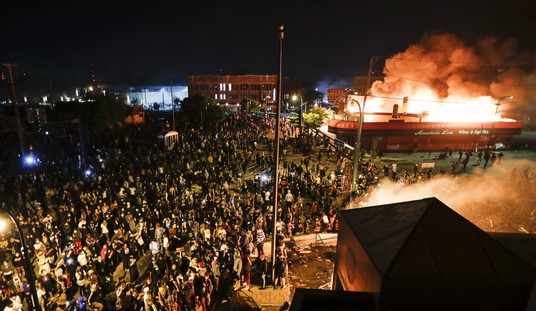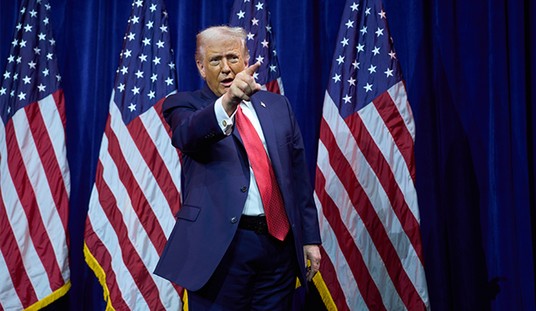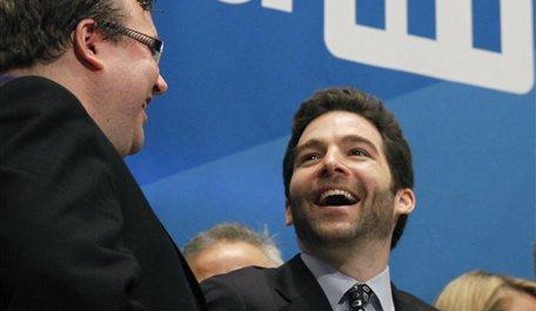Don’t shoot the messenger. They claim to have Minnesota Supreme Court precedent to back them up.
The ACLU filed a brief Tuesday supporting Craig. It cited a Minnesota Supreme Court ruling 38 years ago that found that people who have sex in closed stalls in public restrooms “have a reasonable expectation of privacy.”
That means the state cannot prove Craig was inviting the undercover officer to have sex in public, the ACLU wrote.
Even if Craig was inviting the officer to have sex, the ACLU argued, his actions would not be illegal.
“The government cannot prove beyond a reasonable doubt that Senator Craig was inviting the undercover officer to engage in anything other than sexual intimacy that would not have called attention to itself in a closed stall in the public restroom,” the ACLU wrote in its brief.
The precedent isn’t named but a little googling reveals that it’s probably State v. Bryant, 287 Minn. 205, 177 N.W.2d 800 (1970). I can’t find it online; anyone able to access a copy on Lexis or Westlaw? There’s a brief description of it in this case:
Relying on State v. Bryant, 287 Minn. 205, 177 N.W.2d 800 (1970), the state contends that a reasonable person using a public restroom can “expect that degree of privacy that the design [of the restroom] affords.” In Bryant, the Minnesota Supreme Court held that police surveillance of an enclosed toilet stall violated the user’s Fourth Amendment right to privacy. 287 Minn. at 209, 177 N.W.2d at 803. But the court also opined that had the door of the toilet enclosure been removed, “anyone using the facilities would have no expectation of privacy.” Id.at 211, 177 N.W.2d at 804.
There are two privacy rights at stake here potentially, the Fourth Amendment protection against unreasonable searches and the Fourteenth Amendment due process protection of certain forms of intimate conduct. The first is procedural while the second is “substantive,” i.e. the first asks whether the cops jumped through the appropriate procedural hoops (like getting a warrant or having probable cause) before arresting you whereas the second defines certain types of behavior that can’t be criminalized under any circumstances (like reproduction). It sounds from the excerpt like Bryant deals only with the procedural right; maybe the cops videotaped the stall without a warrant. If so, then the question for the court in Larry Craig’s case would be whether the toe-tapping etc. rises to the level of probable cause. If, on the other hand, the ACLU is also claiming a substantive due process right — and it sounds like they are based on the second half of the excerpt from the news story — then they’re also claiming that you have a constitutional right, at least in Minnesota, to shtup in the toilet so long as you’re not too noisy about it. Any reason to think the law might be on their side? Maybe. There’s a case from Idaho holding that even when the cops see you masturbating through a hole in the stall door, your expectation of privacy protects you from prosecution. Although that also sounds like more of a Fourth Amendment decision than a substantive due process one.
Oh, the name of the suspect in the Idaho case? Limberhand.
Craig’s problem here is that, if you believe the police, he solicited the officer in the stall next to him. That makes it harder to argue that he was isolated in his own little “private” enclave, attending to his business. The issue seems to come down to whether whatever’s going on in the stall is so noisy or conspicuous that it would give rise to probable cause while standing outside and not peeking in. If it doesn’t, then how do you get probable cause?
Update: A commenter wonders, doesn’t this mean the Mile-High Club is protected too? Fly the friendly skies, my friends.
Update: A reader sends along a copy of the Bryant case, which involves men having sex through a hole in the stalls of a department store restroom with the cops watching from above in a ventilation shaft. The decision’s couched in Fourth Amendment terms, although the court conspicuously doesn’t address what would constitute probable cause sufficient to overcome the expectation of the privacy. Here’s the key passage:
It is understandable that a large department store would desire to eliminate a use of restrooms that would be revolting to most people who wished to use the facilities properly. There were, however, ways of eliminating such use of the facilities other than surreptitious surveillance. The store had known about the hole in the partition for some time before defendant was apprehended, but had not closed it. The store could have removed the doors if it saw fit, so that anyone using the facilities would have no expectation of privacy; or it could have posted signs warning anyone using the facilities that they were apt to be under surveillance. But once facilities are provided wherein those using them properly are assured of privacy, the store has no right to destroy that privacy without the consent, actual or implied, of one to whom it has been assured. In the very nature of things, in the process of protecting the innocent all search and seizure prohibitions inevitably afford protection to some guilty persons; but the rights of the innocent may not be sacrificed to apprehend the guilty.
And here’s the dissent, noticing their silence:
Since it would never be possible to secure a search warrant in situations of this kind, I am of the opinion this surveillance for a limited time and purpose was reasonable and did not violate for Fourth Amendment. The alternative proposals suggested by the majority are not, in my opinion, realistic solutions.
Update: Here’s the ACLU’s very brief brief.








Join the conversation as a VIP Member